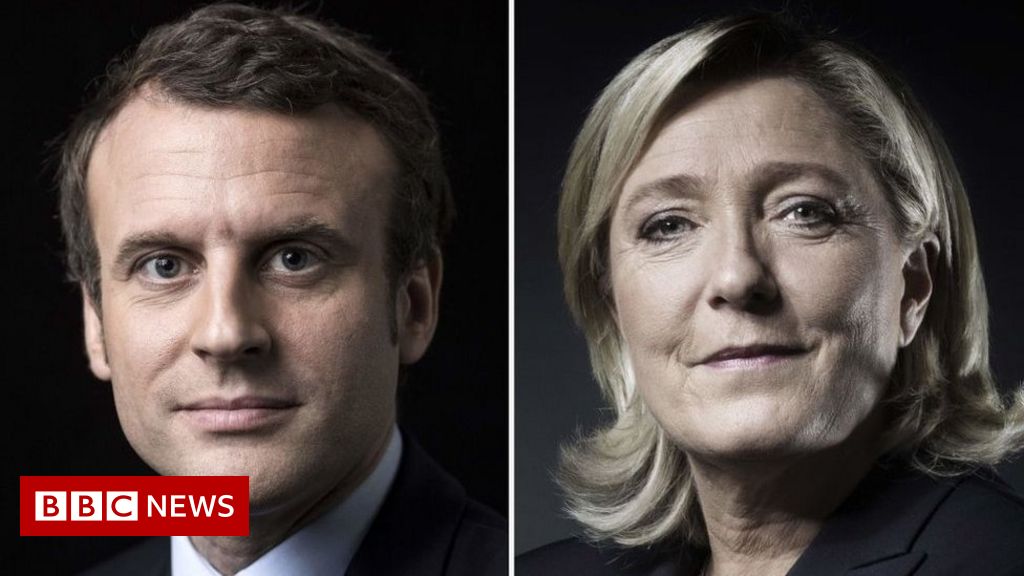
France heads to presidential polls
About 48 million eligible French voters are heading to the polls for the first round of the French presidential election to be held on Sunday, April 10, 2022 to choose a new president who will govern the nation for the next five years.
Tomorrow’s election looks set to be one of the country's most-watched political races in decades.
Advertisement
The first vote sets 12 candidates, eight men and four women, against one another and these candidates qualified for the race by securing endorsements from 500 mayors and/or local councilors from across the country.
If no candidate wins 50 per cent of the vote in the first round, the two contenders with the most votes will proceed to a run-off two weeks later, on Sunday, April 24, 2022.
This election is not the only national vote France faces this year as parliamentary elections are scheduled to take place on June 12 with runoffs on June 19, to elect the 577 members of the National Assembly, the lower house of the French Parliament.
The first term of the incumbent President, Emmanuel Macron of La République En Marche! (LREM), who won the 2017 presidential election lasts until May 13, 2022.
The candidates
The candidates are Marine Le Pen, the veteran far-right leader who is making her third attempt for the presidency; Eric Zemmour, an ex-journalist, a TV pundit and best-selling author; Nicolas Dupont-Aignan, the eurosceptic head of the "Rise Up France" party and Valerie Pecresse, the head of the Greater Paris region.
The others are incumbent President Emmanuel Macron who has been in power since 2017; Anne Hidalgo, the mayor of Paris and leader of the Socialist Party; Yannick Jadot, the former Greenpeace campaigner and Jean-Luc Melenchon, a political veteran famous for his tirades against globalisation.
The rest are Fabien Roussel, the charismatic leader of France's Communist Party; Philippe Poutou, a self-styled voice of the workers; Nathalie Arthaud, a low-key and bookish former teacher and Jean Lassalle, the eccentric MP from the southwest Pyrennees mountain.
The main contenders
Out of the 12 candidates six of them are the main contenders and three are from right of French politics while two are from the left but President Emmanuel Macron is seen as a centrist as he represents the Republic on the Move party and attracts voters from both the right and left.
Macron’s most serious challenger, Marine Le Pen and Eric Zemmour are both from the far right, with Mr Zemmour seen as the most hardline while Valérie Pécresse is standing for the more moderate, right-wing Republicans and Jean-Luc Mélenchon is from the far-left party France Unbowed, and Yannick Jadot is standing for the Greens.
Major setbacks
After a succession of major setbacks, France's traditional left has all but vanished from contention. Support for the Socialist Party has collapsed since its candidate, François Hollande, held the Presidency between 2012 and 2017.
Observers say Emmanuel Macron is likely to benefit from divisions on the left, while the right accuse him of copying their policies.
The election campaign has also been overshadowed by the war in Ukraine, and the president has played an important diplomatic role as a statesman.
The election system
The two rounds of the election will be held 14 days apart. If, as expected, no candidate wins more than 50 per cent of the votes in the first round on April 10, the two candidates with the highest votes will go forward for a second round of voting to be held on April 24 and whoever wins the second round will take office on May13.
Emmanuel Macron has had a clear and significant lead in the polls for at least six months. That lead has grown since Russia's invasion of Ukraine. Marine Le Pen is well ahead of the other candidates, while support for her far-right rival Eric Zemmour, who once said that he "admired" Vladimir Putin, has declined.
Campaign’s biggest issues
Apart from Ukraine, opinion polls suggest the biggest issues of the campaign have been the economy, immigration and security. In January, France posted its strongest annual economic growth for half a century, bouncing back from the shock of the COVID-19 pandemic.
The overall strength of the French economy is likely to favour the Macron campaign.
France has seen unemployment fall to 7.4 per cent, just above the average for the eurozone but close to the target set by the Pediment when he came to power.On immigration, official statistics suggest that in 2020 there were about 6.8 million immigrants living in France. Immigration has featured prominently in the campaigns of the right-wing candidates.
Background
France hasn't re-elected a sitting president for 20 years, diplomacy has trumped campaigning in the president's agenda and with the conflict fueling a cost of living crisis, French voters aren't facing the election many expected.
Never before in the history of the Fifth Republic, founded by Charles de Gaulle in 1958 – a presidential election has been held in such a dramatic and volatile context.
After two years of a once-in-a-century pandemic, the climate emergency and now the Ukraine war – the first invasion on European soil since the end of World War II – voters will have to decide whether they will give President Emmanuel Macron a second chance or change course in a more radical way.



